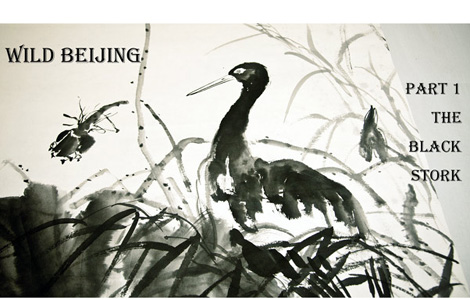Overseas sellers still upbeat on China
Updated: 2013-06-26 07:40
By Li Jiabao (China Daily)
|
|||||||||||
Despite easing growth in the world's second-largest economy, overseas sellers attending the 2nd China International Import Conference in Beijing this week said they remain optimistic about the Chinese market.
"China's economic slowdown may have some impact in the short term, including rising costs from exchange rate fluctuations," said Michael J. Dee, director of the Beijing office of the New Zealand Trade Promotion Association.
"But in the long run, New Zealand exports still have great opportunities to tap into the market because of its diversified demand and the strong purchasing power of Chinese consumers.
"New Zealand is hoping to sell more products to China, including dairy products, animal husbandry products as well as pharmaceuticals and healthcare products," he said.
The two-day import conference, being held by the China Council for the Promotion of International Trade until Wednesday, aims to promote China's imports of commodities, advanced equipment and key components, energy products, raw materials and consumer products.
The first CIIC - held last September, attracting more than 1,000 enterprise representatives from home and abroad - led to commercial agreements worth $40 million, said Wang Jinzhen, the deputy head of the CCPIT.
Just over a year ago, the State Council, China's cabinet, issued a series of measures, such as customs duties reduction and financial support, to promote more balanced international trade for the country.
"China's drive for balanced trade will create huge opportunities for other countries and regions, as the government significantly lowers customs duties, restructures industries and expands domestic demand, in addition to enhancing import facilitations," Wang added.
"This drive is not short-term, but an important decision in accordance with China's economic development.
"At present, and in the near future, China will further encourage imports through favorable fiscal and taxation policies, improved financial services and import regulations, as well as trade facilitation enhancement."
The CCPIT is China's largest trade and investment promotional body and hosts import exhibitions and fairs as well as provides consultation, legal and arbitration services in different regions, to facilitate overseas sellers, domestic buyers and distributors.
Yan Libing, deputy director-general of the economic information department at CCPIT, said China's expanding imports will benefit economic growth, easing the pressures created, for instance, by natural resource shortages left by the country's rapid economic expansion.
China is the world's largest exporter and second-largest importer.
In the first five months, its exports rose 13.5 percent year-on-year to $878.6 billion, while imports rose by 8.2 percent year-on-year to $797.7 billion, according to the General Administration of Customs.
"Although the economy is slowing, there is still great opportunity in China," said Aisha Ka from the foreign affairs department of the European American Chamber of Commerce and Industry, who added that as the emerging middle class continues to grow, the market's demands will continue to diversify.
Kristopher Sanchez, director of international trade at the Nevada Governor's Office of Economic Development, added that China's economic growth has brought about "tremendous opportunities" for the US state, currently enjoying double-digit trade growth, and its exports here are expected to continue rising.
"We put China as a key strategic destination, and our small and medium enterprises are strengthening their exports to here," he said.
Sanchez added that China was Nevada's top export market last year, with business worth $561 million, compared with total exports of $10.2 billion, with future income from electronics, components and services expected to rise particularly.
Michael Dee, from the New Zealand trade organization, warned, however, that China still has "much to do" in expanding its import conditions.
"Its customs duties should be cut further, especially for dairy products and animal husbandry products," he said.
Related Stories
Luxury sellers adapt to changing market 2013-05-04 01:58
Short-sellers cry wolf again on Chinese economy 2013-04-27 14:47
Investors file lawsuits against US short seller 2012-10-13 09:47
Telecommunication equipment sellers suffer slowdown 2012-08-30 09:58
US short-sellers muddy the waters 2012-02-13 09:26
Today's Top News
4 caught over killings of Chinese in PNG
Rudd sworn in as Australian prime minister
China slams Japan's new defense white paper
IBM to make Chinese job cuts
Building equipment sector shifts overseas
Stocks hold steady, but brokers still cautious
China can curb credit crunch: ADB official
Mandela still critical, Zuma cancels trip
Hot Topics
Lunar probe , China growth forecasts, Emission rules get tougher, China seen through 'colored lens', International board,
Editor's Picks

|

|

|

|

|

|





